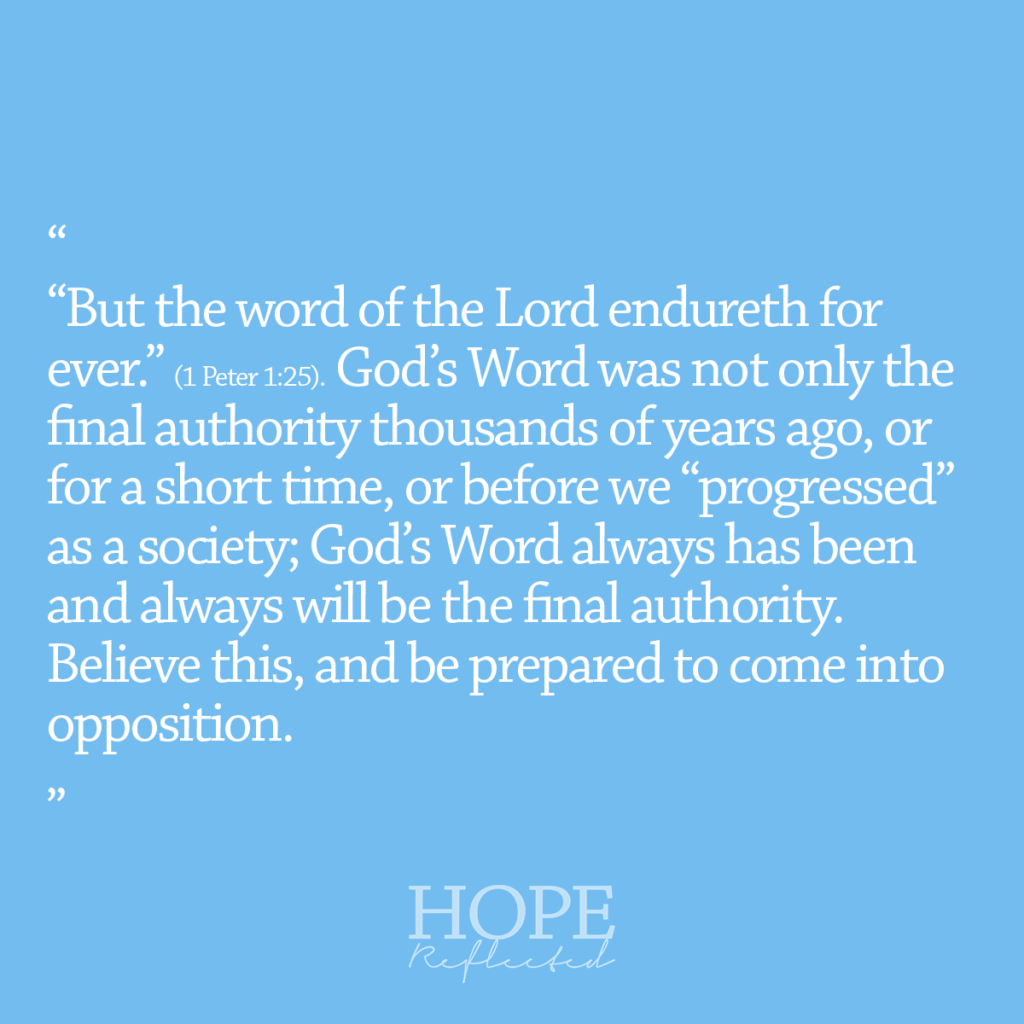Accused or excused?
Written by H, Posted in Christian Living, Published Work
Our obedience to God’s Word determines the outcome.

Our inner compass
To accuse is to place blame, and to excuse is to forgive or pardon. Our conscience is our inner compass to help us recognize right from wrong, to help us understand where blame ought to be placed, and where pardon should be granted. Our conscience is not our judge; it acts more as a witness. As Paul wrote in Romans about the following of the Law between the Jews and the Gentiles, “… their conscience also bearing witness, and their thoughts the mean while accusing or else excusing one another;” (2:15). C.S. Lewis wrote in his book The Problem of Pain that God speaks to us through our conscience. For Christians, this should be true, but so often today we run into people making decisions guided by their “conscience” whose internal value system is not based off the Bible. Unless we let God through His Word lead our conscience, we are in great danger of buying into distorted views and making poor decisions.
Where do our convictions come from?
Martin Luther said, “My conscience is captive to the Word of God.” Unfortunately, this isn’t always true for us. We frequently hear even prominent “Christians” claim that they agree with everything in the Bible, except the parts where God lists ____ [fill in the blank here] as a sin.
![It should be a red flag when we hear Christians claim that they agree with every thing in the Bible, except the parts where God lists ___ [fill in the blank here] as sin. Read more of "Accused or excused?" on hopereflected.com](https://www.hopereflected.com/wp-content/uploads/2022/01/2022_jan5_hopereflected_accusedorexcused_Christiansquote-1024x1024.png)
Where do these convictions come from if not from the Word of God? R.C. Sproul said that, “acting according to conscience may sometimes be sin as well. If the conscience is misinformed, then we seek the reasons for this misinformation. Is it misinformed because the person has been negligent in studying the Word of God?” Most likely, especially in cases where Christians take on viewpoints that completely contradict Scripture. We cannot pick and pull parts of God’s Word to work for our convenience.
God’s Word is the final authority
“But the word of the Lord endureth for ever.” (1 Peter 1:25). God’s Word was not only the final authority thousands of years ago, or just for a short time, or only before we “progressed” as a society, God’s Word endures forever and is always the final authority. When we believe this, we should be prepared to come into opposition. When people don’t want to be accountable, when they know the right way but they prefer to follow their own path and pleasures, they don’t just shy away from the truth, they outright oppose it and accuse others of being wrong.
“What the Bible calls wrong, the world calls right; what the Bible calls sin, the world calls virtue.”
Hope Reflected

What the Bible calls wrong the world calls right; what the Bible calls sin the world calls virtue. With misinformation and conflicting messages abounding, it can be hard to discern what’s really right from what’s really wrong. We need to bring it back to Biblical basics. “let God be true, but every man is a liar;” (Romans 3:4). Paul called out Jew and Gentile alike who were making themselves judge and jury, who were accusing or excusing behaviours amongst themselves.
There is only one judge, and He is God. What the Bible says is what ultimately goes, even if we don’t like the case. Our obedience to God’s Word will be the determining factor of whether we stand accused or excused.



![False friends or counterfeit kindness; whatever you want to call it, the world is filled with people who will say one thing to your face and then another behind your back; people who will woo you in order to get something from you.
It’s sad, but it’s true.
The Bible provides us with examples from Joab to Judas, and yet, we’re surprised when we find ourselves deceived and hurt by someone else.
So what are some of the hallmarks of a true friend?
You can read more about this on hopereflected.com [Link in profile]
.
.
.
#friends #friendship #kindness #counterfeitkindness #hurt #proverbs #truefriends #hopereflected #blog #blogpost](https://www.hopereflected.com/wp-content/plugins/instagram-feed/img/placeholder.png)